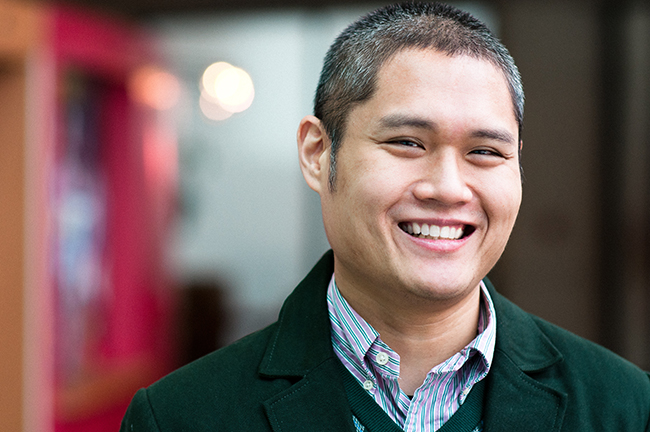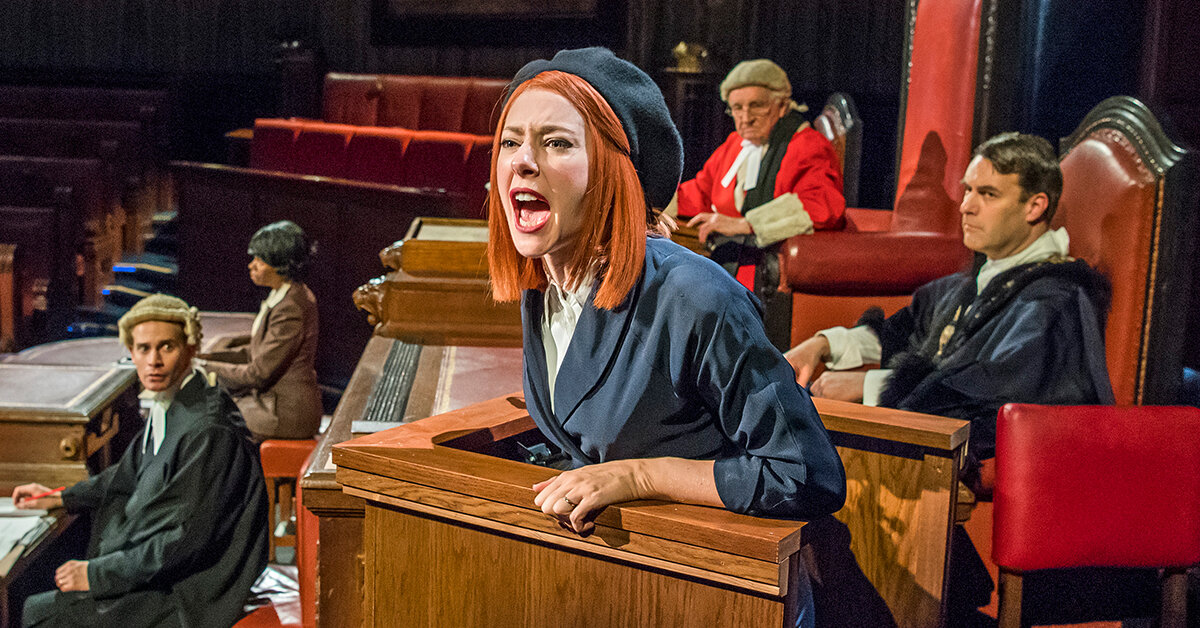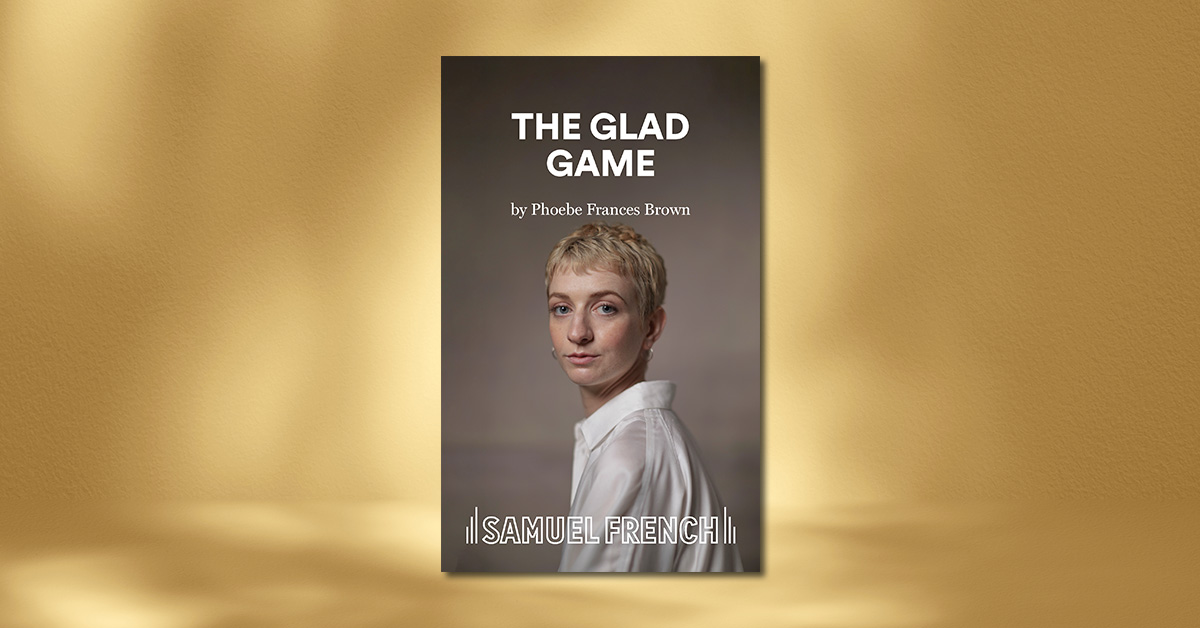
When you pick up a play by A. Rey Pamatmat, it won’t take long for you to become fully engrossed by his characters. Whether the play concerns the lives of under-parented children in Edith Can Shoot Things and Hit Them, or takes an LGBT approach to the themes of one of Shakespeare’s more obscure works in Thunder Above, Deeps Below, Rey’s voice is always unmistakable and deeply original. It’s a hallmark of his craft not only as a writer, but as a collaborator with other artists.
“I do write for specific people, and even when those actors don’t play those parts I’m still imagining them throughout the writing process. So, I end up adapting their ways of speaking. If something comes out so baldly exposition-y or just so flat and terrible, I tend to think of the actors I’m writing for and how they would say things in order to make the words sound like words.”
The specific voice in Rey’s plays is not only approachable, but the issues and themes of his work provide opportunities for underrepresented demographics.
“My plays do focus a lot on queer issues and on perceptions of immigrants or Filipinos or Filipino-Americans as Americans. And I have been more boldly political lately, for obvious reasons…”
Take a look at Rey’s play House Rules, which introduces audiences to two Filipino-American families. While the characters do discuss their relationship to customs and cultures within their families, those discussions are part of a universal narrative about how adult children deal with the mortality of their parents. After all the terrible things I do showcases queer issues by discussing bullying and torment in the LGBT community. Rey uses books, poetry, and the strength of language to focus his message and ground it in two beautifully human characters.
“My plays are all very different in terms of genre or tone. But the thing that I always feel unites them is that all of my narratives typically hinge on some form of self-actualization or community actualization, where the main characters or the group of characters empower themselves to overcome their obstacles.”
That self-actualization has been in Rey’s writing since he was in the first grade, when he wrote his first story.
“I wrote a short story in — I think it was first grade — about a squirrel who needed glasses and was embarrassed because he was afraid his friends would make fun of him. Eventually, the squirrel accepted his need for glasses and realized other people’s comments about them weren’t important. But, of course, his friends didn’t make fun of him, because they were good friends, and I was a very hopeful kid.”
Rey’s writing took shape in high school and college when he was having essays and short works published, but in his time at NYU he transitioned from acting to playwriting. All it took was the introduction to playwrights who wrote for the here and now.
“Freshman year for me was when Angels was on Broadway, and I saw it repeatedly. I was really surprised because even though I went to an undergrad for acting, I thought plays were written by dead people about things that happened before. So, seeing Angels was so amazing to me. I was writing by sophomore year, and then my junior year my first play was produced at NYU.”
Rey’s work has been seen everywhere from developmental lab theaters like the Lark and the O’Neil Center, to professional regional theaters like the Huntington, Actors Theater of Louisville, and Milwaukee Rep, to Off-Broadway theaters like Ma-Yi Theatre Company and the Atlantic Theatre Company.
Beyond Tony Kushner’s epic response to HIV/AIDS, Rey finds inspiration in several other writers who bucked conventional craft, many of them working today.
“I really love Fornes; you know I think we’ve gotten really obsessed with narratives. Fornes reminds us that there are ways to be interesting and beautiful that don’t depend strictly on narrative, and I love her intuition and her very intuitive plotting. In the same vein, I’m a Caryl Churchill lover. And I mean my contemporaries are, like, insane! I love Dominque [Morisseau]. I love Hansol Jung. I love – I mean, there are just so many!”
While Rey is often at the theatre several nights a week (if not for his shows, for his friends’, or for plays that pique his interest) he does find time to enjoy the food culture that is so prevalent in New York.
“I’m a big food guy, but at the same time I kind of hate foodie culture. I understand where it comes from, but I came to food because my whole family cooks. My older sister is actually a chef; we all learned to cook from my mother. And my little sister, she cooks, and her husband also cooks — to the point where they’re making salami and charcuterie in their garage. Do you know what I mean? My family is insane.”
Rey has had a handful of plays in development over the past few months, and there is more on the horizon. A Power Play; Or What’s-its-name, which had a reading in August of last year as a part of the Asian American Mix Fest, seeks out the personal and political roots of a shooting. Though gun violence is a part of the narrative, the spells and magic in the piece are well-used metaphors in Rey’s exploration of power.
“I guess I’m more interested in how provocative and political my plays can be, but at the same time still have them be plays by me, you know what I mean? I’m not interested in writing polemics, because I don’t write polemics… I don’t want politics to be a limit. I want it to be a jumping off point, rather than a limit.”
To purchase a copy of A. Rey’s plays or learn more about licensing a production, click here.

Heathers The Musical: 10 Facts for 10 Years

Agatha Christie’s Witness for the Prosecution: Meet the Characters

